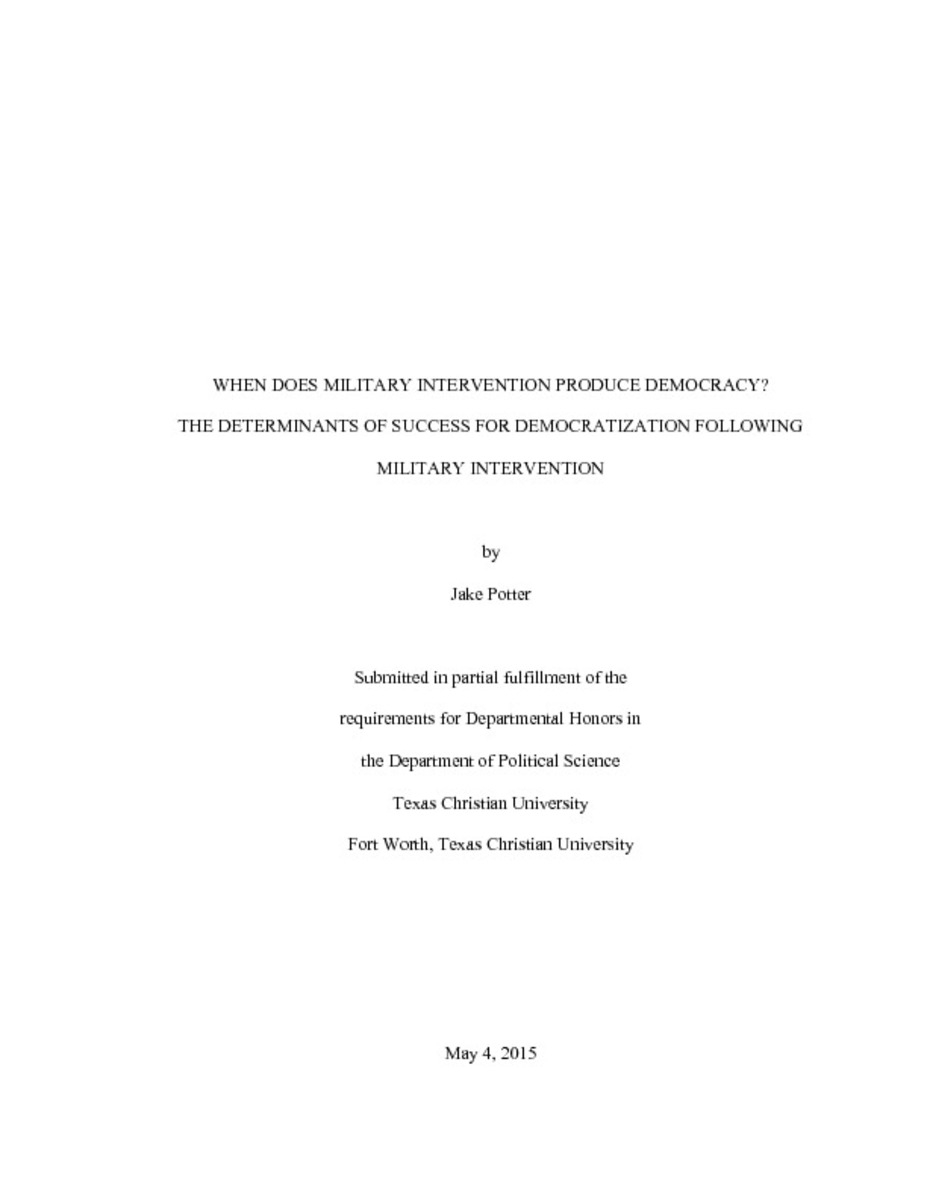When Does Military Intervention Produce Democracy? The Determinants of Success for Democratization following Military InterventionShow full item record
| Title | When Does Military Intervention Produce Democracy? The Determinants of Success for Democratization following Military Intervention |
|---|---|
| Author | Potter, Jake |
| Date | 2015 |
| Abstract | This paper investigates why some interventions by the United States have resulted in democracy while others have not by examining the preconditions associated with successful democratization after military intervention. It employs both quantitative and qualitative methods to examine twelve different countries with unique instances of intervention from the period of 1982 to 2003 and two detailed case studies of US military intervention in Haiti (1994) and Panama (1989), highlighting the importance of economic growth, respect for the rule of law, and social homogeneity prior to the military intervention in the subsequent progress toward democracy. Through this mixed-method approach, this analysis finds support for the argument that economic growth, respect for the rule of law, and social homogeneity prior to intervention are important predictors of successful democratization after intervention. Case studies provide further partial support that growth in per capita GDP and a higher respect for the law in Panama produced a stable democracy after the US intervention in 1989, while in Haiti a stagnant economy and a lower respect for the rule of law resulted in a largely failed democracy after the US intervention in 1994. |
| Link | https://repository.tcu.edu/handle/116099117/10412 |
| Department | Political Science |
| Advisor | Scott, James |
| Additional Date(s) | 2015-05-01 |
Files in this item
This item appears in the following Collection(s)
- Undergraduate Honors Papers [1463]
Related items
Showing a few items related by title, author, creator and subject.
-
Democracy and Disgust: Opinion Priming for Military Intervention
Athenour, Danny (2017)This paper seeks to build on two fundamental bodies of research pertaining to the emotion of disgust as a behaviorally relevant construct. The first explores the impact of disgust on interpersonal relations, citing ... -
The United States Military's Venereal Disease Policies: An Examination of the Military's Regulation of Sex from World War II to the Vietnam War
Anton, Caroline (2020)Twentieth Century wars led to spikes in venereal disease rates for American soldiers and civilians in nations that the U.S. military deployed troops to. This paper examines the U.S. military's response to rising venereal ... -
Military Drill company
Unknown author (c1890s)
© TCU Library 2015 | Contact Special Collections |
HTML Sitemap






